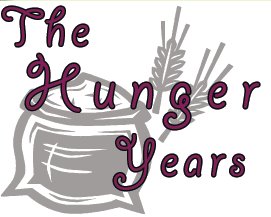Speaking on food activism that goes beyond the "hippie" or "organic" experience to the everyday (and often ignored) battle to bring fresh fruit and vegetables to kids, the author shares her experience at a "Farm to Cafeteria conference."
She sets the scene beautifully and drives home to readers how dire the situation is with her descriptions of attendees:
"Here's a portrait of the people I met: middle school students from New Orleans who convinced their superintendent to change his foodservice contract so they could have fresh, locally grown produce at least twice a month. (They succeeded.) High school students from Vermont who worked to get root vegetable 'seconds' from local farms onto the lunch menus at their schools. (They succeeded.) And a group of committed college and university students across the country who have formed a vast network to bring 'real' food to their cafeterias. (They are currently succeeding, with much more work ahead of them.)"
It personally blows my mind to think about not having eaten fresh fruit or vegetables. I lived off those things as I grew up. We were lucky enough to have a huge garden in the backyard or (when i was living in the city), to be within walking distance of a farmer's market or even (when i as living in Illinois) to live next to independent farmers who were free with giving their food to local kids willing to help them with the crops.
Sternman ends her post with a provocative question that I felt was worth thinking about:
"What, to you, is real food? Not healthy food, not nutritious food, because the conversation has moved past these terms, but real food? How inclusive is the definition? And what does it leave out? Try, if you can, to think past Michael Pollan's 'food your grandparents ate' and probe a little deeper."
My idea of 'real' food is something with an emotional connection. It was actually a trip to Morocco that taught me this. While you can go out and buy organic or healthy food now, for me, its not real until you have an emotional connection with the person who planted that crop or tended to it or picked it or showed that they took special care to prepare it. Moroccan water has bacteria in it (just like most tap water does) and so when we stayed there, the cooks would clean the fresh fruit and vegetables special for us. They had to boil water to kill the bacteria and then let that cool so they wouldn't accidentally cook the produce. There was such care that even though I buy cherries, for example, back in the states, they just aren't the same. I've lost the emotional connection.
There's almost a spirituality with 'real' food. And when I eat what I think of, I'm reminded of the person that that food connects me too: the farmer, the picker, the cook. It doesn't matter, there's something more real about it when there is that connection, that memory to have.
What's you're answer?



